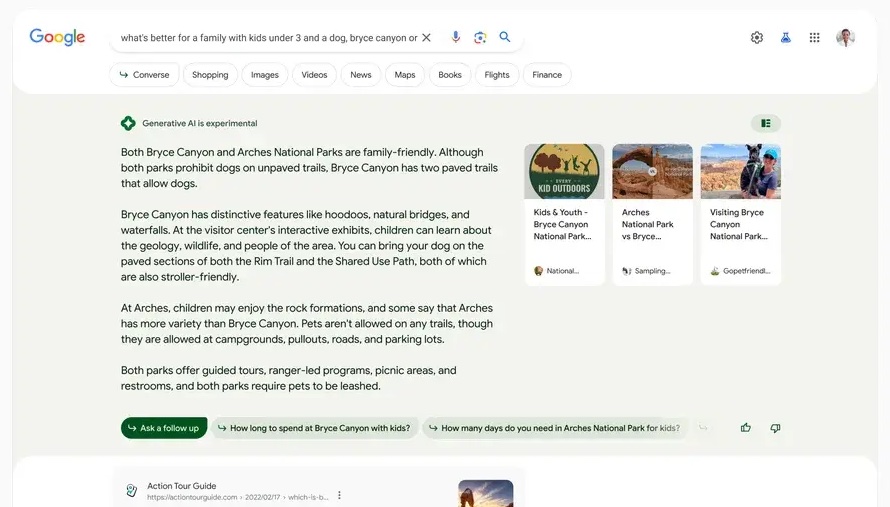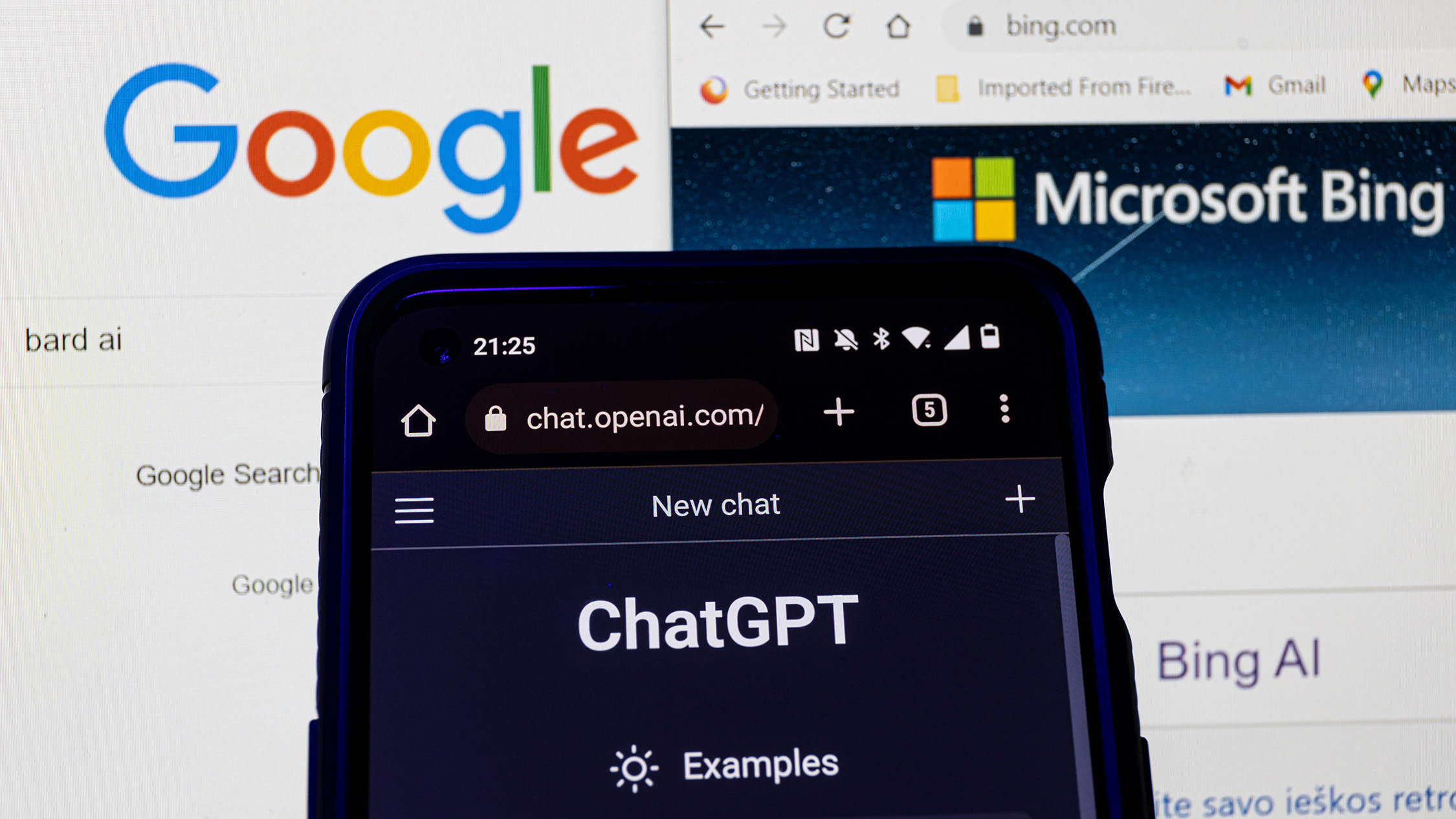
There was a lot of AI news at Google I/O this year, touching on everything from Google Bard to Google Docs, but nothing bigger than Search Generative Experience (SGE). Yes, even Google Bard losing its waitlist couldn’t hold a candle to Google essentially reinventing Search with generative AI.
We had heard rumors that a Google Search AI upgrade was coming at I/O 2023, introducing features from a secretive Google program codenamed Project Magi that was tipped to be Google’s next-generation search engine.
And that is exactly what we got. Even if Google never explicitly said that its AI-based search engine — now officially SGE — was the start of Google 2.0., that’s exactly what SGE is. It is the official reinvention of how we search, even more so than Microsoft Bing Chat has been. With the integration of generative AI chatbots directly into Search, rather than as an additive feature, Google has shown us its plans for the future of Search.
And everyone else is a step behind.
Microsoft Bing Chat is supplementary — Google’s AI replaces Search entirely
@tomsguide ♬ original sound - Tom’s Guide
It’s tough to stress how important the launch of SGE at Google I/O was. Years from now, I think we'll look at it as a watershed moment in how we search online, whether it’s ultimately successful or not.
That’s because of how SGE is designed. Microsoft has been very deliberate with how it launched Bing Chat. It has kept the ChatGPT clone largely separate from its Bing search experience, though it has started to let Bing Chat responses trickle into Bing search results.
But with Google SGE, the trickle is now a flood — provided you have access. In its tech demo, Google showed off a version of Search, the same Google Search we all use today, but completely taken over by AI. The AI snapshots aren’t something you’ll decide whether or not you want for a given search query, they’re now the first thing you’ll see every time. And because of that, they’ll soon become the norm once this new search experience is unleashed on the general public.

And speaking of queries and norms, Google showed off how it expects you to search going forward, and it’s ripped straight from ChatGPT. Gone are the days of traditional search queries such as “bikes.” Instead, you’ll be using ChatGPT-style prompts that are as specific as possible, such as “good bike for a 5 mile commute with hills.” You’ll be conversing with Search, and it will respond with actual answers.
That’s the future we’re soon approaching — not a chatbot you go to instead of a search engine. Instead, you’ll just ask an AI-powered search engine for exactly what you want, and the search engine will respond with exactly what it thinks you were looking for. And that’s the future that Google put on display at I/O.
Warning: You may not get the answer you were looking for with AI search
Here’s the problem though — that future could get dystopian, fast. AI chatbots regularly get things wrong, but more terrifyingly, they regularly get things wrong in a completely plausible manner.
For example, one of our writers was shocked to discover that ChatGPT thought he was dead. And because he was very much alive, he was able to quickly determine that the AI got it wrong. But if you didn’t know he was alive, then you could easily buy ChatGPT’s well-worded response as totally plausible.
Similarly, we asked Bing with ChatGPT and Google Bard what phone to buy as a way to test both chatbots and both got plenty wrong. In fact, they were so bad at the task, we ultimately concluded that neither could help you pick your next phone.
But we’re journalists. Specifically, we are journalists that excel in recommending things like the best phone you can buy. So when we examine the responses of these generative AI, we know exactly what to look for because we bring years — if not decades — of experience and knowledge.
The average person likely brings none of that to a specific topic. Even we, experts in phone recommendations and all things tech aren’t experts on everything. So if Google’s AI spotlight gives us a wrong, but incredibly plausible answer, we could reasonably just accept it as fact. Heck, we already do that plenty often with what we see on the internet without the help of AI.

This is the problem that Google SGE will need to avoid if it doesn’t want to be the thing that killed the utility of Google Search forever. It needs to be accurate nearly all the time, or it will send us careening into the post-truth world we’ve already begun to enter.
If Google gets things just right, obtaining exactly the knowledge you need — or as Google executives reportedly put it, “help you when there’s no right answer” — then that could be a massive win for humanity. But get it wrong enough, and The Godfather of AI’s warning about an AI doom for us all may prove all too accurate.
Hopefully, Google will choose not to be evil.







